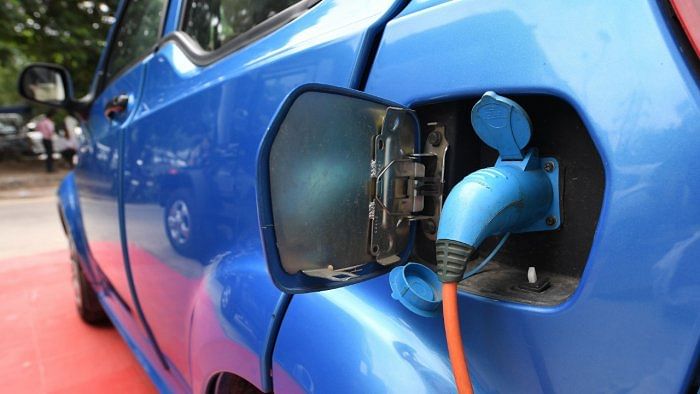
Karnataka may have been the first state to introduce an electric vehicle (EV) policy, but it is miles away from New Delhi and is likely to be overtaken by other states that are aggressively pushing for EV adoption and creating the necessary infrastructure.
Researchers from The Energy and Resources Institute (TERI) looked into the readiness and capacity needs for EV adoption in four cities, including Bengaluru, and spoke to stakeholders to come up with a report which was released recently.
A team of researchers selected two big cities - New Delhi and Bengaluru - and two smaller ones - Guwahati and Panaji - to understand the factors that influence EV adoption and deployment at the city level.
The team found that though Karnataka was the first state to pass its EV policy (2017), it has fallen behind in adoption rates and consumer purchase incentives whereas New Delhi has shown a strong willingness to increase the share of EV two-wheelers, delivery services and taxis.
While the Union government’s FAME [Faster Adoption and Manufacturing of (Hybrid &) Electric Vehicles in India] scheme has increased EV market penetration to an extent, the additional incentives provided by the state governments in the four capital cities have acted as motivators.
“However, since transport-related initiatives are not the city’s concern but are handled by the state instead, cities are unable to tap into localised decision-making potential and flexibility for EV encouragement,” the study said. The study assessed the stage of the EV transition, physical/environmental attributes, economic characteristics, governance/policy interventions and innovation characteristics of the cities.
Against the overall score of 100, New Delhi came first with 72.3, followed by Bengaluru (57.1), Guwahati (30.5) and Panaji (30). Interestingly, Bengaluru scored 50% more than Delhi when it comes to readiness of the society to accept EV and was on a par with Delhi in innovation readiness. However, it fell short in categories like environmental readiness, which looks at the strategies to integrate the EV transition comprehensively in the city’s climate action plans.
“Bengaluru’s large geographical area, young population and need for last-mile linkages are factors to be considered for development of a unique transportation landscape that will impact strategies for transport electrification,” the study noted.
I V Rao, Senior Fellow at the Centre for Sustainable Mobility, who reviewed the report, said the two-wheelers have a major role to play in the EV adoption. “Electric two-wheelers will be embraced in cities where the public transport is limited and walking is not the viable option for commuting to work. They also complement public transport through first and last mile connectivity,” he said.